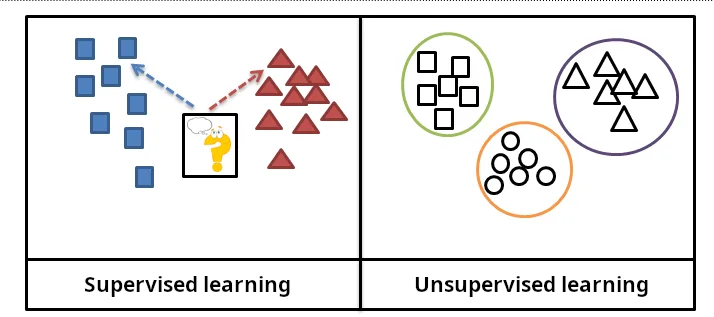Artificial Intelligence (AI) is no longer just a buzzword or a futuristic concept. It has quickly become a transformative force that is shaping industries of all sizes, and small businesses are no exception. While AI has long been associated with big corporations and complex technologies, its potential to revolutionize small businesses is now clear and undeniable. From enhancing operational efficiency to improving customer experiences, AI offers small businesses the tools to not only survive but thrive in an increasingly competitive market.
Small business owners are often stretched thin, juggling multiple roles and responsibilities. Many do not have the resources or the manpower of larger enterprises. However, AI’s ability to streamline operations, automate routine tasks, and provide actionable insights levels the playing field. It empowers small business owners to focus on strategic growth and customer relations while AI handles many of the time-consuming aspects of running a business.
In this article, we will explore 10 impactful ways that AI will reshape small businesses in the near future. While AI may seem like a big investment or a complicated technology at first, it is becoming more accessible, affordable, and user-friendly. By embracing AI, small businesses can open new avenues for innovation, efficiency, and growth.
1. Automating Time-Consuming Tasks: Efficiency at Its Best
One of the most immediate ways that AI will impact small businesses is by automating routine and time-consuming tasks. Small business owners are often bogged down with administrative duties, such as data entry, scheduling, inventory management, and invoicing. These tasks take up valuable time that could be better spent focusing on growth, strategy, or customer relationships. AI-powered tools are revolutionizing how businesses handle these tasks.
AI can automate processes like managing emails, organizing calendars, and even creating reports, which traditionally required manual effort. For instance, AI-powered virtual assistants can help manage appointments, automatically sort and prioritize emails, and send reminders to clients and customers. Similarly, AI-driven accounting software can manage invoicing, track payments, and generate financial reports with minimal human intervention. This automation not only saves time but also reduces the risk of human error, ensuring that business processes are carried out more efficiently.
By automating everyday tasks, small businesses can cut down on overhead costs, minimize administrative workload, and free up valuable resources that can be redirected toward strategic decision-making.
2. Enhancing Customer Service with Chatbots and Virtual Assistants
Customer service is the backbone of any small business, but providing timely and effective customer support can be a challenge, especially with limited staff. This is where AI-powered chatbots and virtual assistants come in, offering a solution that can scale as your business grows.
AI-powered chatbots can handle customer inquiries, provide information, and resolve common issues 24/7, even outside regular business hours. Whether it’s answering frequently asked questions, providing product recommendations, or helping customers with the checkout process, chatbots can improve customer engagement without requiring additional human resources. These virtual assistants can be integrated into websites, social media platforms, and messaging apps, making it easier for customers to interact with your business.
Moreover, AI chatbots are continually learning from customer interactions. Over time, they become better at understanding the nuances of customer queries, providing more accurate and personalized responses. This makes it possible to offer high-quality customer service at scale, all while reducing the pressure on your customer support team.
Not only do AI-driven customer service solutions increase efficiency, but they also create a more seamless and satisfying experience for your customers, fostering loyalty and repeat business.
3. Personalizing Marketing Campaigns
In the past, small businesses often relied on one-size-fits-all marketing campaigns, which could be hit-or-miss when trying to reach a diverse customer base. Today, AI is making it easier for businesses to create highly personalized marketing strategies that speak directly to individual customer needs and preferences.
AI tools can analyze large datasets to uncover valuable insights about your customers, including their behavior, purchase history, and browsing patterns. With this information, AI can segment your audience into smaller, more targeted groups. These segments allow you to craft personalized email campaigns, tailored offers, and even individualized content on your website.
For example, AI can suggest personalized product recommendations based on a customer’s past purchases, increasing the likelihood of repeat sales. Similarly, AI can analyze social media interactions and website traffic to identify which marketing channels are performing the best, helping you allocate your marketing budget more effectively.
By leveraging AI for personalized marketing, small businesses can create more relevant, engaging content and connect with their customers in a way that feels authentic and tailored. This personalized approach not only boosts customer satisfaction but also drives conversions and increases sales.
4. Streamlining Inventory Management and Supply Chain Operations
Inventory management is one of the most complex and crucial aspects of running a small business, especially for retailers or businesses that depend on a steady supply of goods. With fluctuating demand, seasonal variations, and limited storage space, maintaining the right inventory levels can be a constant challenge. However, AI is poised to make inventory management more efficient and less prone to human error.
AI-powered tools can help businesses predict demand more accurately by analyzing historical data, market trends, and even weather patterns. With this insight, businesses can optimize inventory levels, ensuring that they have the right amount of stock on hand to meet customer demand without overstocking and tying up valuable resources. AI can also help businesses manage their supply chains by identifying potential disruptions, such as delays from suppliers or logistics challenges, allowing for proactive solutions.
For small businesses with limited inventory management systems, AI offers a game-changing solution that minimizes waste, reduces stockouts, and lowers operating costs. By streamlining inventory management and supply chain operations, AI helps small businesses run more smoothly and maintain a competitive edge.
5. Leveraging AI for Data-Driven Decision Making
In the past, small business owners often relied on gut feelings and intuition when making decisions. However, with the advent of AI and advanced data analytics, businesses now have access to powerful tools that can help them make more informed, data-driven decisions.
AI can analyze vast amounts of data from various sources, such as customer interactions, sales trends, and social media, and present actionable insights that are difficult to uncover manually. For example, AI-powered analytics can help businesses identify emerging trends in customer behavior, forecast demand for products, or even assess the effectiveness of marketing campaigns in real-time.
These insights empower small business owners to make smarter decisions and reduce the risks associated with trial-and-error approaches. AI can also help identify inefficiencies within the business, suggesting areas where improvements can be made to increase profitability or customer satisfaction.
With AI handling the heavy lifting of data analysis, small businesses can focus on making strategic decisions based on actionable insights, rather than relying on guesswork.
6. Improving Employee Productivity and Collaboration
AI can also enhance the productivity and collaboration of employees within a small business. With AI-powered tools for project management, communication, and task automation, businesses can create a more efficient and collaborative work environment.
For example, AI-driven project management tools can automatically assign tasks to team members based on their workload, skills, and availability. AI can also track progress in real time, identify potential bottlenecks, and provide insights into how projects can be completed more efficiently. These tools reduce the need for manual coordination and help keep teams on track.
AI-powered collaboration platforms can also help employees work together more effectively, regardless of their location. Virtual assistants can schedule meetings, share documents, and track important deadlines, while AI-driven communication tools can ensure that messages are sent to the right people at the right time.
By improving employee productivity and fostering better collaboration, AI can create a more streamlined and harmonious workplace, ultimately benefiting the business as a whole.
7. Enhancing Security and Fraud Prevention
Cybersecurity is a growing concern for small businesses, especially as they increasingly rely on digital platforms for operations, sales, and customer interactions. Cyberattacks, data breaches, and fraud can have devastating consequences for small businesses, including financial losses, reputational damage, and legal repercussions.
AI can play a pivotal role in protecting small businesses from these risks. AI-powered security systems can detect unusual activity, identify potential vulnerabilities, and even predict and prevent fraud before it happens. For example, AI can analyze transaction data in real time, flagging suspicious purchases or unusual spending patterns that may indicate fraud. Similarly, AI can monitor network traffic for signs of malicious activity, such as unauthorized access attempts or unusual data transfers.
These AI-powered security systems can significantly reduce the risk of cyberattacks and fraud, providing small businesses with peace of mind knowing that their digital assets are being constantly monitored and protected.
8. Improving Employee Recruitment and Retention
Finding the right talent is a critical challenge for small businesses, which may not have the resources to compete with larger companies when it comes to hiring. However, AI is helping small businesses streamline their recruitment process, making it easier to find, evaluate, and retain top candidates.
AI-powered recruitment tools can analyze resumes and job applications, identifying the most qualified candidates based on predefined criteria. These tools can even assess soft skills and cultural fit, helping employers identify candidates who are most likely to thrive in the business environment.
AI can also help businesses improve employee retention by analyzing employee data, such as performance reviews, attendance records, and satisfaction surveys. This data can reveal potential issues, such as employee disengagement or job dissatisfaction, allowing small businesses to address concerns before they result in turnover.
With AI helping to attract and retain the right talent, small businesses can build stronger, more effective teams that drive growth and innovation.
9. Personalizing Customer Experiences with AI
In today’s competitive marketplace, customers expect personalized experiences that cater to their unique needs and preferences. AI is helping small businesses provide exactly that, enabling them to deliver highly customized experiences across various touchpoints.
AI-powered recommendation engines, for example, can suggest products or services to customers based on their browsing history, purchase behavior, or preferences. These recommendations make it easier for customers to discover relevant products, improving their overall experience and increasing the likelihood of conversions.
Similarly, AI can personalize communication by tailoring messages, offers, and promotions to individual customers. Personalized email campaigns, product recommendations, and discounts can increase customer engagement and build stronger brand loyalty.
By harnessing the power of AI, small businesses can offer a more personalized and engaging experience that resonates with their customers, driving sales and fostering long-term relationships.
10. Empowering Small Business Innovation
Finally, one of the most exciting ways AI will impact small businesses is by empowering them to innovate. With AI tools and technologies at their disposal, small business owners can experiment with new ideas, products, and services more efficiently than ever before.
AI can help businesses identify market gaps, analyze customer feedback, and prototype new products quickly and affordably. AI-powered tools for product design, market research, and customer testing enable businesses to bring new ideas to market faster, reducing the time and cost associated with traditional innovation processes.
Moreover, AI can help small businesses improve their existing products or services by identifying opportunities for optimization and enhancement. Whether it’s refining a product’s features, improving customer service, or exploring new distribution channels, AI gives small businesses the tools to stay competitive and creative.






